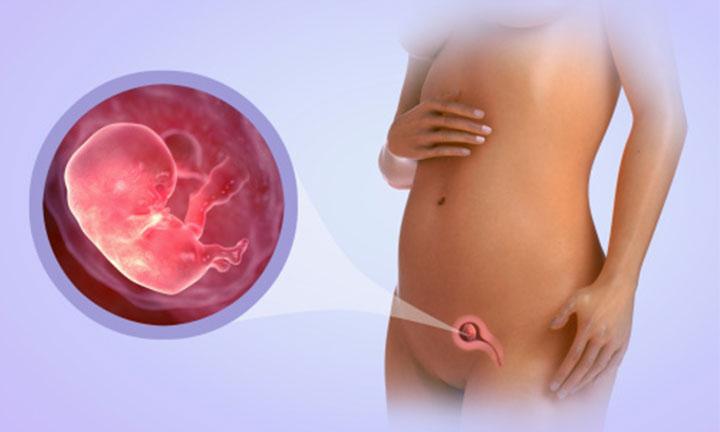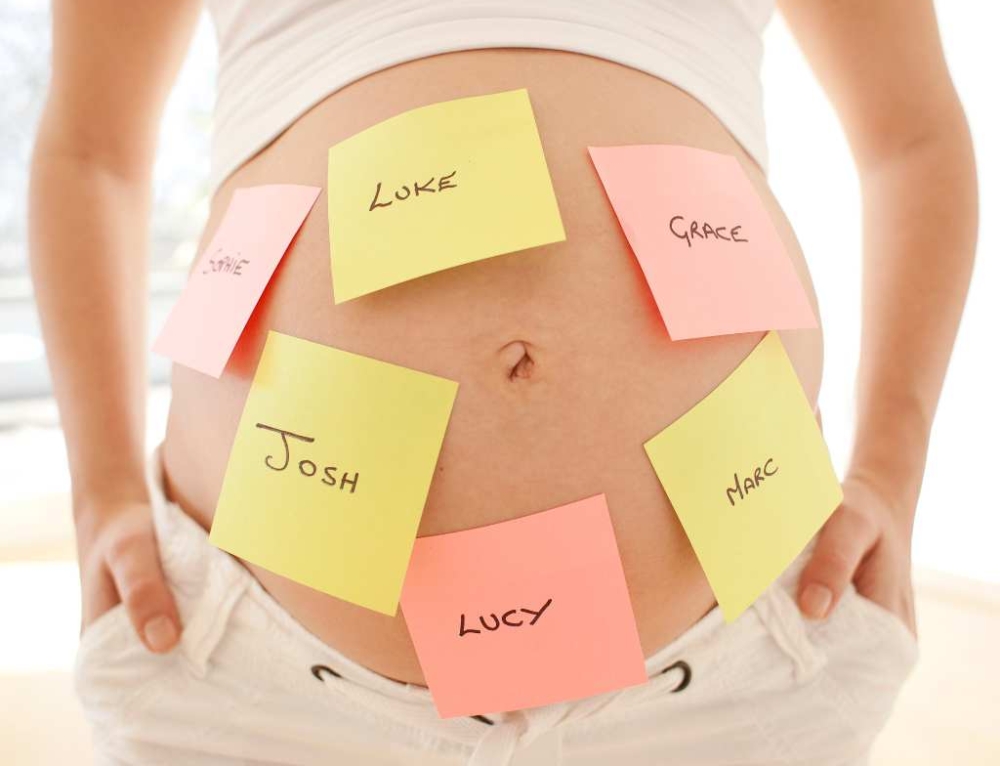Welcome to your week 9 pregnancy update where we outline the changes you and your baby are experiencing.
Your Baby
She is almost fully developed and measures approximately 2.3cm long (the size of a large olive) and weighs 2 grams. Baby’s developing limbs are taking shape, with fingers and toes nearing completion – there are even touch pads on the ends of her fingers. Eyelids have started to develop and a nose is starting to form, making a nice change from the nasal pits decorating the baby’s face of a few weeks ago.
Your baby’s neck is more developed, allowing them to slightly lift and turn their head! Your baby may now be able to touch their own face with their hand (the beginnings of thumb sucking!)
Baby’s intestines were part of the umbilical cord last week, but this week the intestines are likely to start to take form in the abdominal cavity. And hooray for that – baby’s stomach area is starting to grow and become more proportionate to her head. The diaphragm is also developing, which will be vital for when baby takes the first breath outside of your body.
Baby’s external ears are formed and her inner ears are now filled with fluid – which allows your little womb gymnast to begin developing a sense of balance. She has tiny earlobes, and her mouth, nose, and nostrils are more distinct. The placenta is developed enough now to take over most of the critical job of producing hormones. Your baby now has an anus and their ovaries or testes are well developed. However, both sexes look the same at this early stage because their external sex organs are just beginning to form.
Just like adults, all babies are different and develop at varying rates in the womb. This information gives a general idea of your baby’s development and progress.
The Mum Update
You may find yourself riding pregnancy’s emotional roller coaster, feeling moody one day and joyful the next. This, along with fatigue is normal and are caused by raging hormones and that fact that making a baby is hard work for your body.
Your skin needs a helping hand to survive pregnancy, too. It will become drier, and perhaps itchier, as your body loses much of its natural oils. Conversely, some women find that acne becomes a problem for them during pregnancy, even if they haven’t been bothered by it in the past, while some women notice an improvement in their acne during pregnancy. but this doesn’t happen for everyone.
Many information sources and pregnancy books will try to provide guides about the ‘recommended weight gain’ during pregnancy. These are usually along the lines of ‘putting on 2- 3 kg in the first 20 weeks, then ½ a kilo per week until the baby is due, averaging 12-14 kg in total. While this may be true for some in women, in practice this is rarely the case.
A woman’s overall weight gain when carrying a single baby may be as little as 8 kg, or as much as 20 kg. Many women carrying multiples find that their weight gain is not that much different from women having a single baby. As a guide for twins you may put on up to 15 to 20 kgs (or more) and for triplets it may be up to 20 to 25 kgs (or more). Be aware that with triplets or quads, your babies will probably be born premature (less than 37 weeks) and therefore your weight gain will generally be put on early and more quickly.







Leave A Comment
You must be logged in to post a comment.